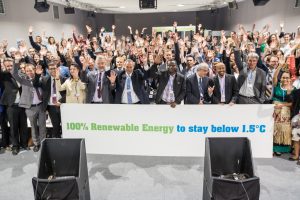Last week, operators in Nigeria’s grid electricity market posited that the market was in a real financial mess owing to its heavy revenue shortfall which they put at N809 billion.
With representations from the generation and distribution companies at a power forum in Abuja, the operators explained that overtime, the conventional electricity market has picked up this much of shortfall in its revenue because of various reasons they tendered.
According to them, issues that include non-availability of a cost reflective tariff as approved in the Multi Year Tariff Order (MYTO 2015) by the NERC; various uneconomic regulatory actions and decisions that impacted their operations; enormous drop in generation capacity which in turn affected the total energy available for sale; as well as chronic debt owed by consumers for services rendered, had contributed to the high market shortfall.
They equally warned that the figures may rise to about N1 trillion by the year end, and indicated that their capacity (the Discos especially) to undertake capital investments in their networks under this condition was doubtful.
By this, the operators have stated their position on investing in their networks, they have not hidden the fact that expectations of an upgrade in their services which include bringing more eligible electricity consumers especially in the rural parts of Nigeria into the network in the near future, keeping the light bulbs on at urban homes and offices, and increasing their existing capacities, was quite uncertain.
At OGN, we understand this to be a sad development because no country can grow its economy with little or no electricity, and no country can equally rely on imported generating sets to power its economy.
But while we acknowledge this as being a bad enough development, we however prefer to look at this glass from a half-full angle, with our choice of view premised on the remarkable options renewable energy solutions can bring to the table.
Adjudged as the quickest and easiest means of getting clean cheap electricity to urban and rural homes, OGN believes that this development offers a great opportunity for improved renewable energy deployment in Nigeria.
Our decision is further buttressed by the regular failings of the conventional grid power and its continued show of fallibilities.
We dare to argue that if operators in Nigeria’s conventional electricity market will find it difficult to get power to over 89 million Nigerians that are still without electricity, renewable energy can and should do that.
Similarly, if these operators take up the excuse of N809 billion market shortfall to deny rural homes and cottage industries access to power, promoters of renewable energy solutions in Nigeria should begin to see this as an opportunity to take the market and hold on to it for as long as they can, after all economics indicates that it is in losing that opportunities are gained or created.





